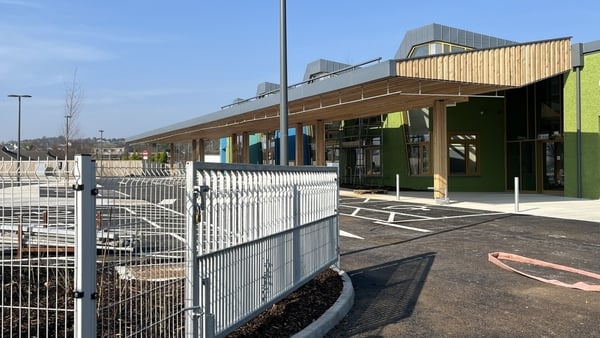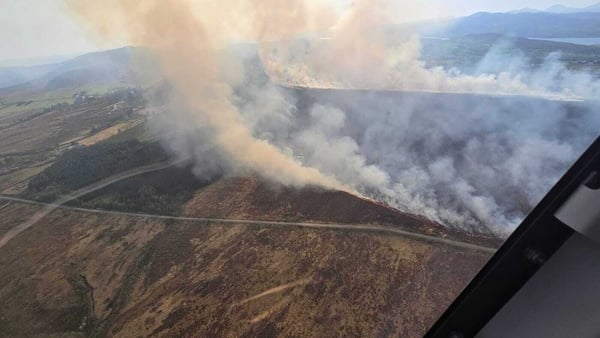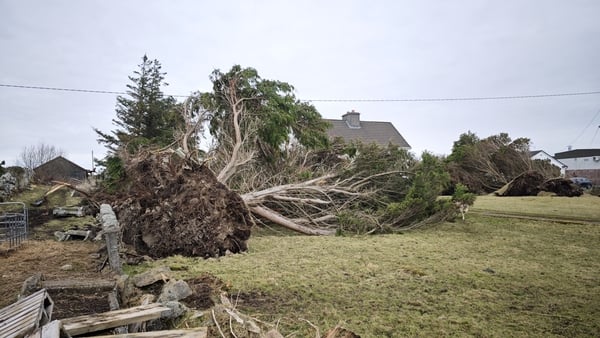Donegal County Council has asked An Bord Pleanála to uphold its decision to grant permission for the redevelopment of a service station at the site where ten people lost their lives in Creeslough on 7 October 2022.
The explosion at the service station and apartment complex in Creeslough more than two and half years ago claimed the lives of four men, three women and three children, aged between five and 59.
Those who lost their lives were Robert Garwe and his five-year-old daughter Shauna Flanagan-Garwe; Catherine O'Donnell and her 13-year-old son James Monaghan; Jessica Gallagher; Martin McGill; James O'Flaherty; Martina Martin; Hugh 'Hughie' Kelly; and 14-year-old Leona Harper.
Donegal County Council granted planning permission in February to Vivo Shell Limited, who are seeking to demolish the existing building and erect a new building which would include a shop, post office, beauty salon, fuel pumps and memorial features.
As part of its statutory obligation, the Council responded to objections An Bord Pleanála received from two law firms on behalf of bereaved family members against the proposed development.
Submissions from Damien Tansey Solicitors and Phoenix Law said the notification of decision to grant the planning application is untimely and premature and they requested an oral hearing.
Site should be preserved as sacred memorial, says solicitors
They said material evidence on the site must be preserved and maintained until the ongoing garda investigation, inquests and a possible statutory inquiry have concluded.
Phoenix Law Solicitors said the site should be preserved as a sacred memorial.
They said the local authority's legal obligations are not confined to planning legislation.

In a submission to An Bord Pleanála, Donegal County Council responded to the objections and the content of the appeals from both legal firms.
It said: "The planning authority fully acknowledges the tragic events in Creeslough on 7th of October 2022 and recognizes the trauma that those effected by those events have endured".
The Council observed that many of the grounds of appeal did not fall within the parameters for assessing planning applications as set out in the Planning and Development Act 2000.
Of the six grounds for appeal set out by Damien Tansey Solicitors, the Council said it did not consider the first four "fall within the parameters for the assessment of a planning application as set out in Section 34 (2) of the Planning and Development Act 2000 (as amended)."
The Council said it does not consider the proposed entrance and exit points would lead to traffic issues and it would not agree with the assertion that the proposed development "would negatively affect the character of Creeslough".
It said: "The commercial development is proposed to offer local services including a shop and post office to the community and visitors to the area adding to the economic vibrancy of the village."
Council says it focused 'solely on the material planning issues'
In response to the 25-page appeal from Phoenix Law Lawyers, Donegal County Council said it focused its own observations "solely on the material planning issues set out in this appeal".
The Council said it does not consider that Article 8 of the European Convention on Human Rights, which states that everyone has the right to respect for private and family life is applicable in the context set out in the appeal documentation.
The Council did not accept the appellant's observations that the application should have been referred to the Commission of Regulation of Utilities, HSA and the Fire Authority.
It said: "The Planning Authority is of the opinion that Part 11 'Major Accidents Directive’ of the Regulations does not apply in relation to the proposed development" as it did not fall within the scope of Section 34(8)(e) of the Planning and Development Act 2000."
Donegal County Council said it had "strict regard" to its statutory requirements in response to the observation that the proposal was premature given the ongoing criminal investigation.
The Council said: "In relation to the prematurity of the proposal given the ongoing criminal investigation, in considering the application and arriving at its decision, the Planning Authority had strict regard to the statutory requirements as defined in the PDA [Planning and Development Act 2000] for making a decision on a planning application".
A spokesperson for An Bord Pleanála said is due to decide on the planning case by 14 July.






